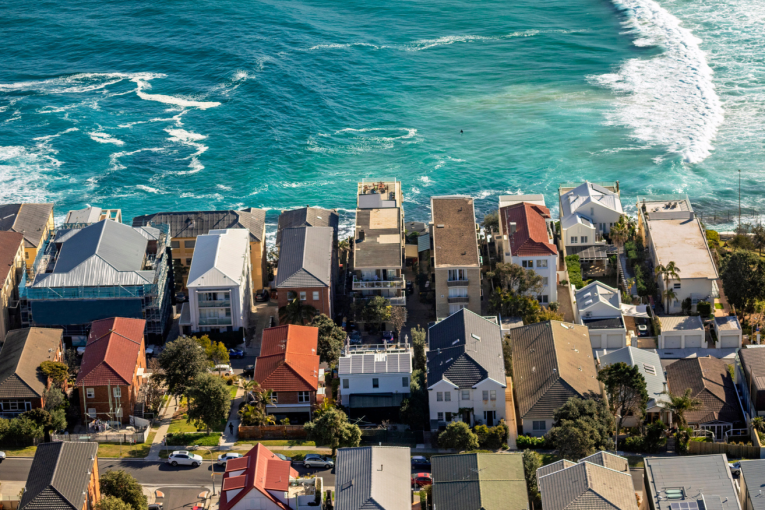Government policies directly linked to housing crisis

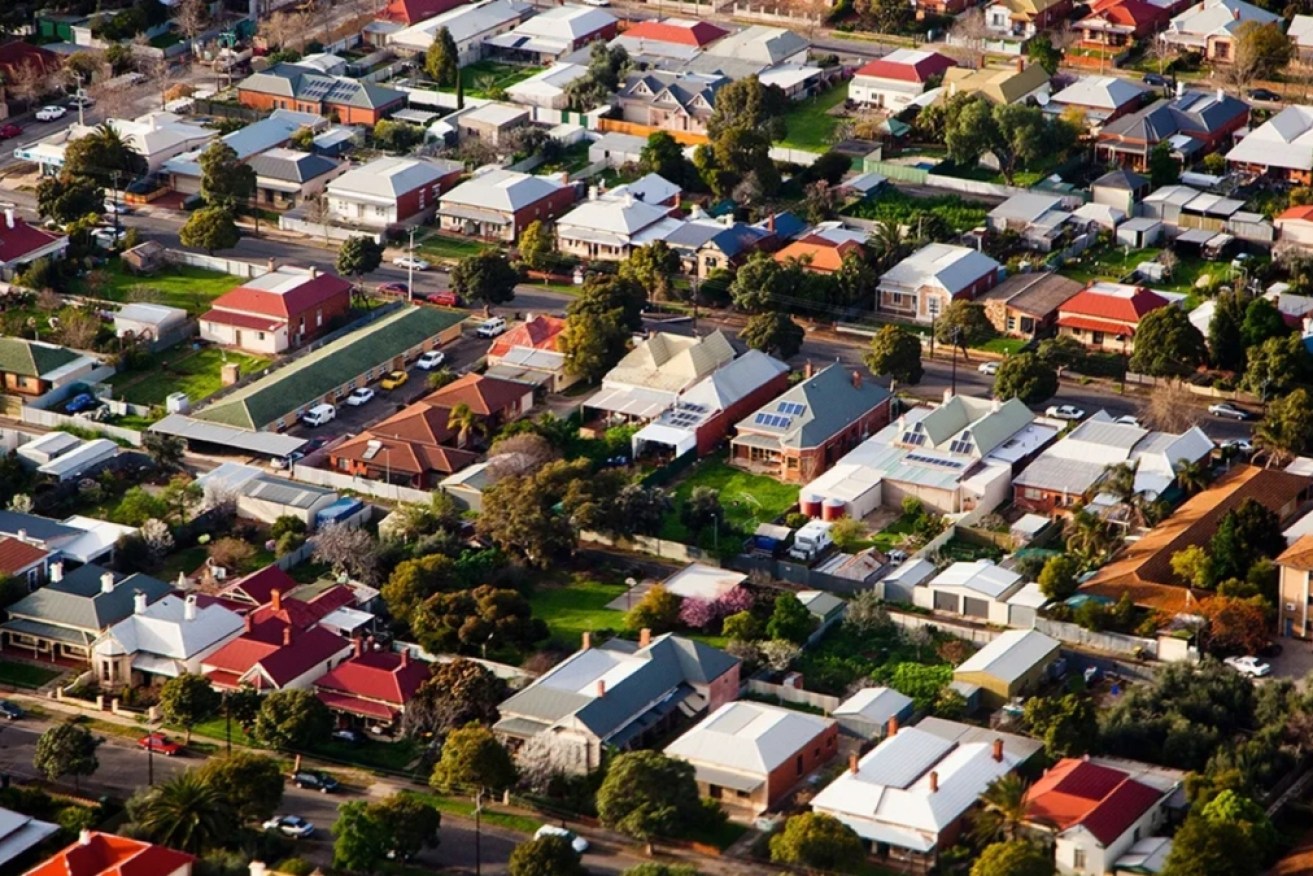
House prices are continuing to rise despite cost of living pressures. Photo: Getty
Australia’s housing crisis can’t be fixed without ending billions in tax breaks for property investors, according to a new report that warns federal plans to build more social housing will fall short.
A long-term analysis published on Monday by advocates Everybody’s Home revealed taxpayer spending on social housing plummeted from $164 per person back in 1982 to just $61 in 2022.
Meanwhile, the federal budget will lose $146 billion over the decade to 2032-33 to negative gearing and capital gains tax concessions that report author Maiy Azize said are making the problem much worse.
Azize said advocates were “sounding the alarm” that Albanese government plans to address the housing crisis through social housing investments will fall short without curbing the tax breaks.
“What [the government] has been doing over the past couple of decades is spending more than it ever has [on housing], but it’s spending on things that prop up the private markets,” Azize said.
“We are spending record amounts on things that make the problem worse.”
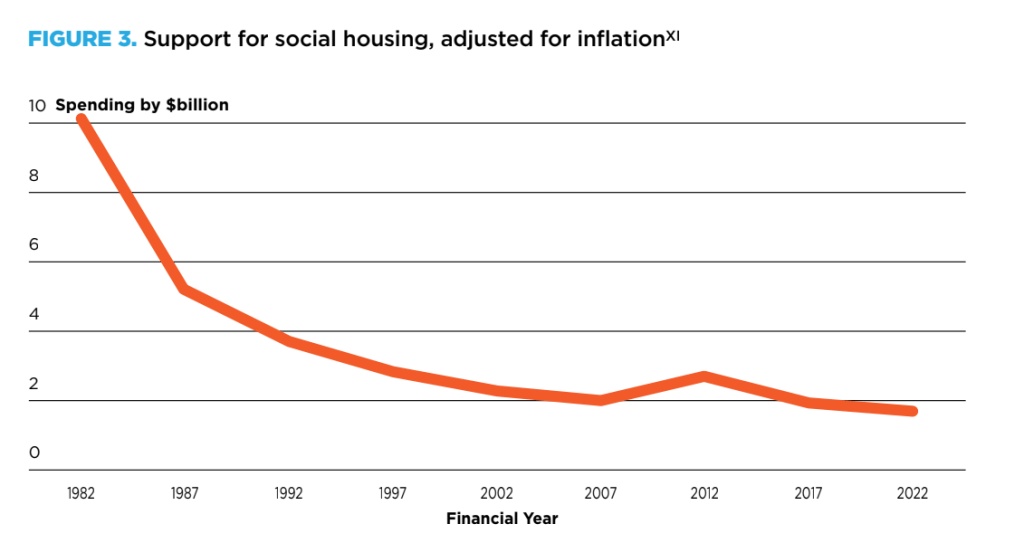
Source: Everybody’s Home (click to enlarge).
Rents reach record high
The analysis comes after rents ended 2023 at a record high, according to the latest CoreLogic figures published on Monday, with national median rents now an astonishing $601 a week.
That is up from $437 in August 2020, meaning annual rent bills have risen $8000 in three years.
The outlook for rents has softened somewhat, but experts say that has only happened because most Australians can’t afford to fork over more.
Many are now faced with the need to consider moving in with other people or relocating to a suburb further from their jobs.
A chronic shortage of available and suitable housing has been blamed for the rent hikes, with the Albanese government hoping the nation builds about 1.2 million homes by 2027-28 to address it.
Housing tax breaks fuel crisis
Last week Housing Minister Julie Collins celebrated the opening of applications for Labor’s $10 billion housing future fund, which promises to initially fund 40,000 social and affordable homes.
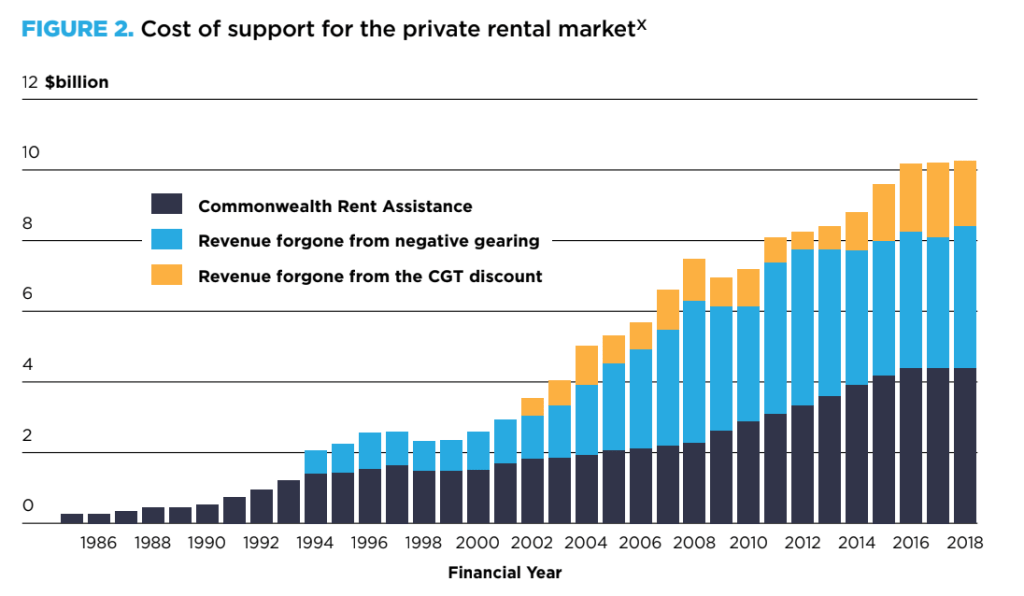
Source: Everybody’s Home (click to enlarge).
But Azize’s analysis shows up to 500,000 homes could be funded if tax breaks for property investors were axed, which is much closer to the scale of action experts argue is needed.
“It would be impossible to bring down the cost of housing without tackling these tax handouts,” Azize said, referencing both their cost to taxpayers and their effects on the housing market.
The Everybody’s Home report tracked changes in housing affordability against changes in government policy over the past 40 years, exposing an extraordinary shift in priorities.
The federal government was a major supplier of housing half a century ago, building about 30,000 homes per year between the 1940s and 1970s, which was up to 22 per cent of all new homes at its peak.
But in recent decades that’s changed to the point that private rental housing now receives five times more support from the federal government in the form of tax breaks than public spending on social housing.
“Housing was cheaper because a third of people rented from the government,” Azize said.
“[The government] pulled back completely from being a supplier and distributor of housing, it has focused entirely on the private market.”
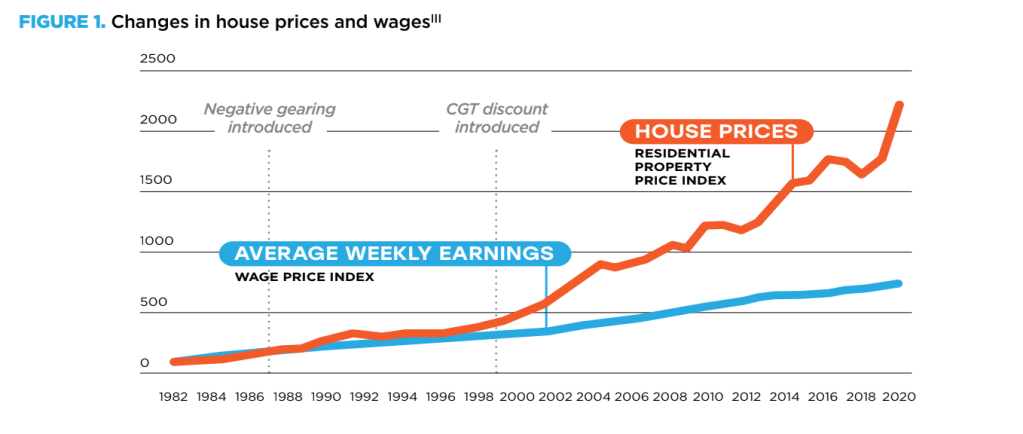
Source: Everybody’s Home (click to enlarge).
Labor did try to curb property tax breaks before the pandemic and even took such policies to the 2016 and 2019 elections – eventually dumping the reforms after Albanese took over as leader.
Since then there has been little political momentum behind a push to axe negative gearing and capital gains concessions, though experts have repeatedly backed such taxation reforms.
Azize said there is solid public support for reforming property tax breaks and that it would be a mistake to read the 2019 election result as a referendum of sorts on curbing negative gearing.
“Support has been growing for the change pretty organically,” Azize said. “A majority of people support winding back these tax concessions.”
